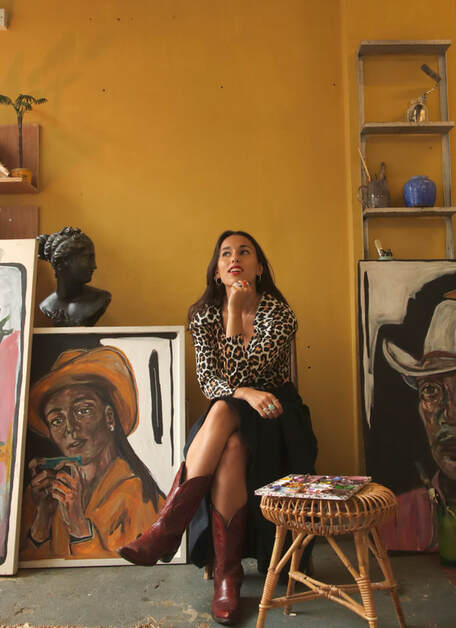
Layla Andrews (b.1997) is an artist currently based in Tracey Emin's studios in Margate.
She’s best known for her figurative paintings that draw inspiration from a combination of the natural world, familial narratives, and miscellaneous second-hand objects. Her artworks often feature a diverse cast of recurring characters, ranging from human figures to crocodiles and crustaceans. Central to Layla’s practice is storytelling; celebrating simple joys, the complexities of identity and the juxtaposition of unlikely pairs.
She was formerly the artist in residence of Brixton Village where she unveiled two large-scale sculptures and curated an exhibition for International Women's Day. In 2016 her work caught the attention of former President Obama, who praised Layla's work and encouraged her to further her art career. In 2022 she was named as one of The Evening Standards ‘22 London women changing the world’.
Layla draws upon her own mixed-race heritage and working-class upbringing, shaped within a matriarchal household, to inform and enrich her practice. Her work is grounded in the belief that art, in whatever form it may take, should be inclusive and accessible to all.
You can read more about Layla's work in Juxtapoz Magazine and Harper's Bazaar here.